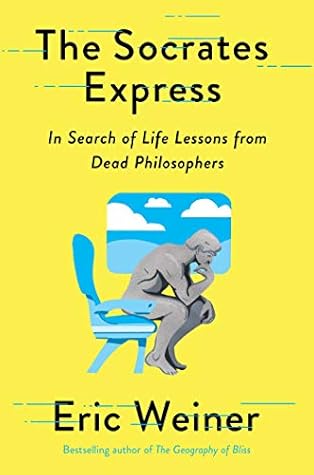More on this book
Community
Kindle Notes & Highlights
by
Eric Weiner
Read between
July 2 - August 21, 2023
Speed breeds impatience.
Impatience is a greediness for the future. Patience is a generous attitude toward time.
The ability to pay attention is, along with the ability to walk upright and open pickle jars, what makes us human.
The world floods our senses with data, like a fire hose. Our brain’s ability to process this data is limited, so it deploys attention as a means to prioritize all that information, to control the fire hose.
Attention is love. Love is attention. They are one and the same.
up, class!—while attention cannot. Observe what happens to your body when you concentrate. Your jaw tightens, your eyes narrow, your brow furrows.
The opposite of attention is not distraction but impatience.
Speed is the enemy of attention.
Patient people are happier and healthier than impatient ones, studies find. Patient people are more likely to act rationally. They have better coping skills.
People impatient with others are rarely patient with themselves.
All inattention is a form of selfishness.
Riding the Tube is a wonderful way to practice paying attention. There’s an endless carousel of people to watch:
It’s easier to probe the quantity of attention than the quality. We measure what is easiest to measure, not what matters most.
We lose objects suddenly but experience the loss gradually.
It’s easier to retrieve a lost diamond than a lost thought.
All violence represents a failure of imagination. Nonviolence demands creativity.
Fighting, done properly, is productive.
Just as you can’t grow a rosebush on toxic soil, you can’t grow a peaceful nation on bloody ground.
Any victory earned through violent means is illusory; it only postpones the arrival of the next bloody chapter.
It is not enough to reject violence, Gandhi thought. We must find creative ways to convert our adversaries into friends.
We might act peacefully toward someone, but if we harbor violent thoughts, we are not clean.
“Do not lose your temper with anybody, not even with yourself.”
Better to fight for your principles than pretend you don’t have any.
Each side in a conflict possesses a slice of the truth, not the whole pie. Rather than trading slices, aim to enlarge the pie.
How you fight matters more than what you’re fighting about.
Benevolence was the correct and only route to power and prestige.”
Start by treating those closest to you kindly, and go from there.
If we can feel compassion for one creature, we can feel it for all of them.
The unkind person can’t imagine the suffering of another, cannot put himself in her shoes.
Kindness honored is kindness multiplied. Kindness is contagious.
Kindness is hard. Everything worthwhile is.
Sometimes you don’t know where you’re going until you start moving. So move. Start where you are. Make a single brushstroke and see where it leads.
Ghosting is not a twenty-first-century invention.
I’m tempted to stop and read Nietzsche, but the philosopher dissuades me: “How can anyone become a thinker if he does not spend at least a third of the day without passions, people and books?”
We write with our hands. We write well with our feet.
Sometimes a loss is just a loss.
Nothing is weightier than eternity. If everything recurs infinitely, then there are no light moments, no trivial ones. Every moment, no matter how inconsequential, possesses the same weight and mass as others. “All actions are equally great and small.”
Most of what we consider under our control is not.
Much of life lies beyond our control, but we command what matters most: our opinions, impulses, desires, and aversions.
Only the man or woman who wants nothing is free.
Complaining, Marcus reminds me, won’t lessen the pain and may exacerbate it.
Adversity anticipated is adversity diminished.
The universe follows a script not written by you.
The reserve clause is similar to the Muslim inshallah (God willing) or the Jewish b’ezrat hashem, only stripped of theology.
To act rationally is to act in harmony with the cosmos,
Nothing is ours, not even our bodies. We always rent, never own. This is liberating. If there is nothing to lose there is nothing to fear losing.
As we age, we become more intensely ourselves. Usually, not in a good way.
The truth is we don’t really think about growing old. We think about staying young. We don’t have a culture of aging.
As we age, the balance shifts, from control to acceptance. Acceptance is not the same as resignation. Resignation is resistance masquerading as acceptance. Pretending to accept something is like pretending to love someone.
We always experience our past, no matter how distant, in the now.


